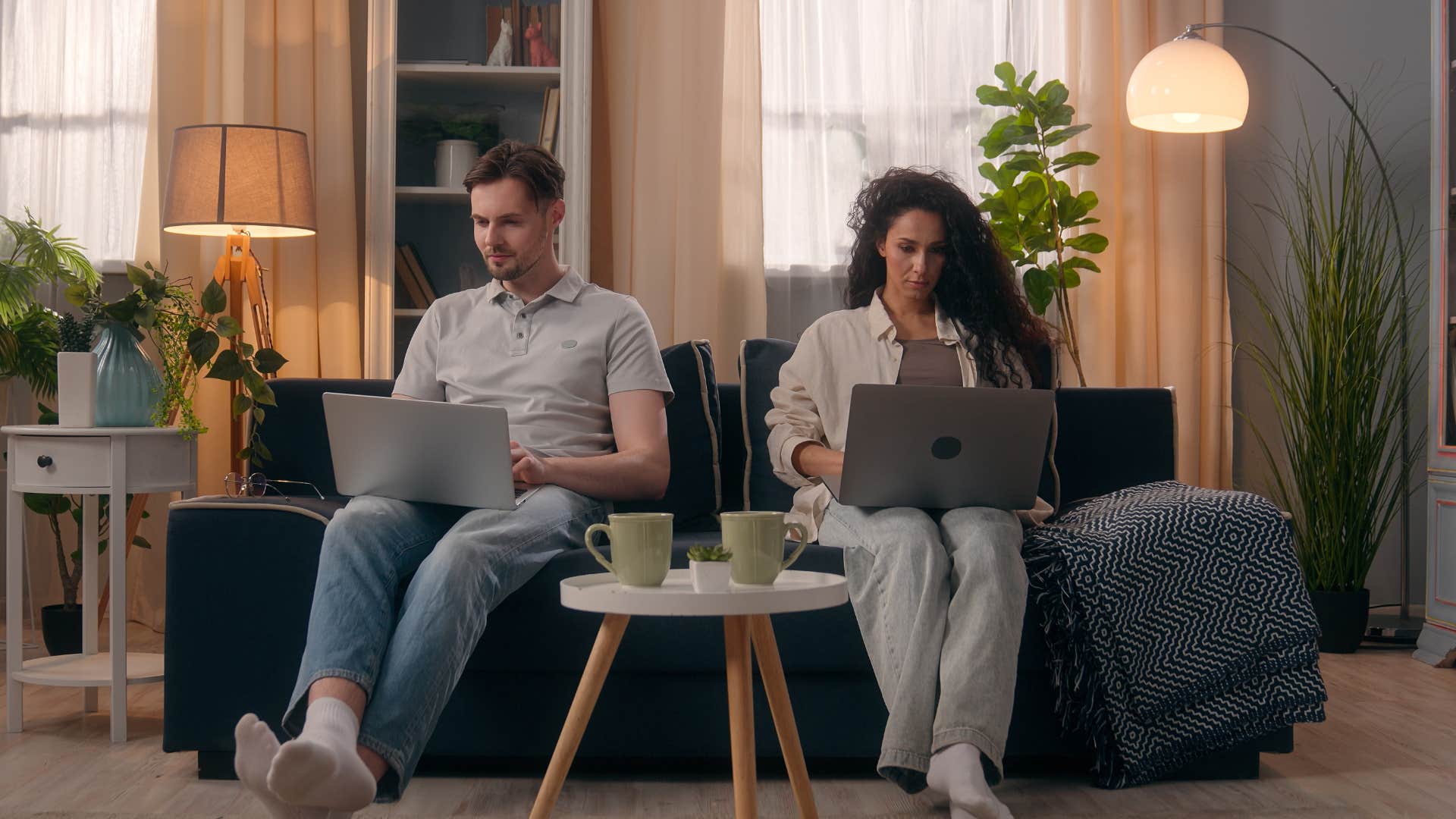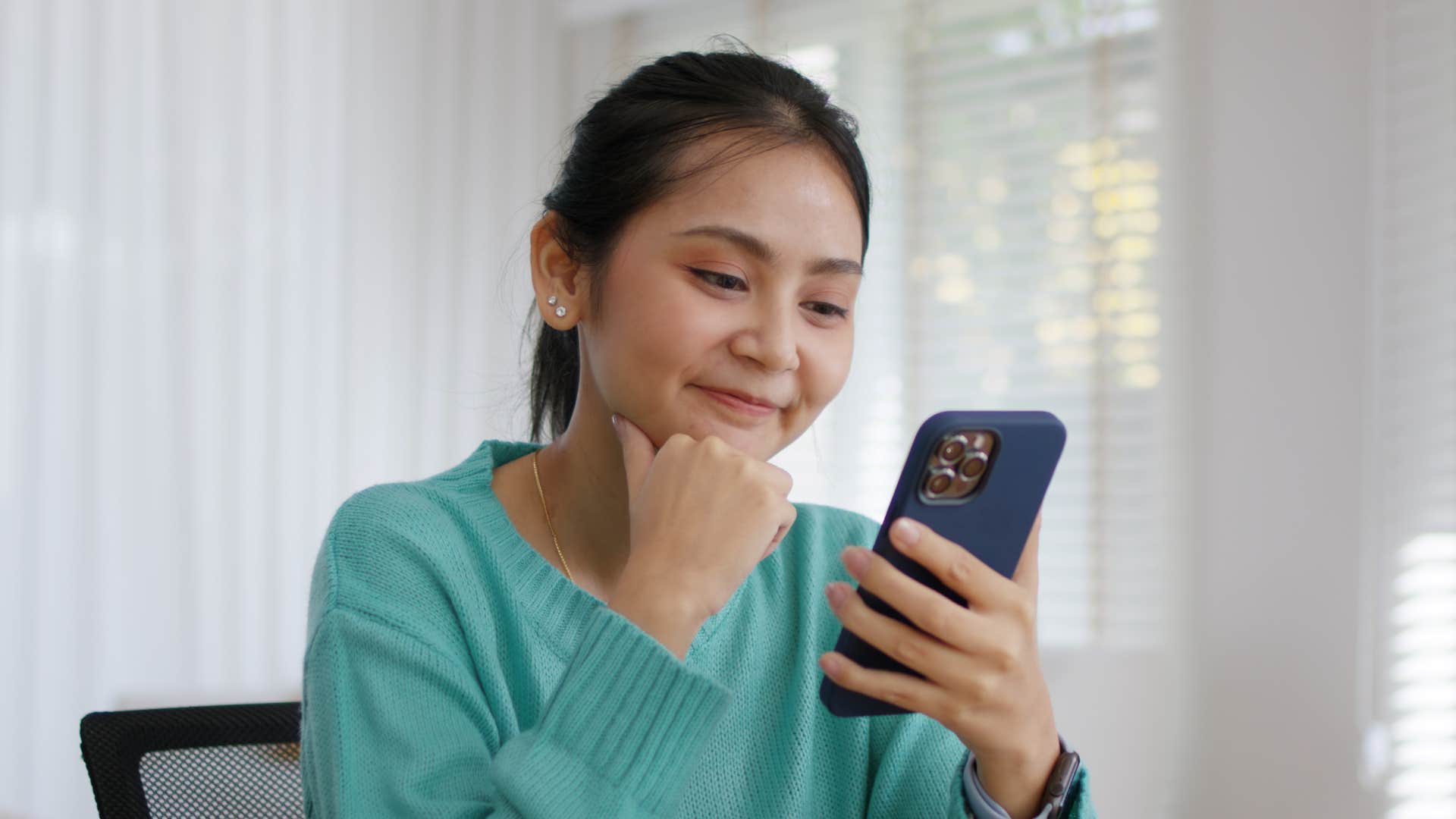11 Things Brilliant Introverts Often Learn Too Late In Life
They've been comparing themselves to extroverts for too long.
 MAYA LAB | Shutterstock
MAYA LAB | Shutterstock Introverts often need a level of social interaction and engagement to feel happy, fulfilled, and secure in life, according to a study from Frontiers in Psychology, but that doesn't mean their preference for solitude and alone time is misguided. In fact, an introverted person has an innately different social battery than their extroverted counterparts — while an extrovert is energized by interaction, an introvert needs alone time to recharge.
While this kind of prioritization of solitude is often an intrinsic demand for introverts from a young age, often taking some time to accept and respect in their lives, there are some things brilliant introverts often learn too late in life. Especially considering our society tends to largely reward extroverted personalities, it's easy to fall into the trap of putting introverted needs to the side, even at the expense of personal happiness and well-being.
Here are 11 things brilliant introverts often learn too late in life
1. Power doesn't equate to loudness
 Roman Samborskyi | Shutterstock
Roman Samborskyi | Shutterstock
Sometimes, it's the quietest people in the room who are actually the most powerful, mature, and emotionally intelligent. They're not fighting to be the center of attention, to prove themselves worthy of space, or to defend themselves against opposing opinions — they're simply listening and appreciating what other people have to say.
Not only does this encourage people to perceive them in more positive ways, feeling heard and appreciated in their presence, but it also gives them space to reflect and regulate in quiet ways, which introverts need more than their extroverted counterparts.
Many brilliant introverts often learn this too late in life, spending their entire careers and lives trying to make themselves seem louder and bolder, even if their true power lies in their comfortable silence and quietness.
2. Solitude isn't loneliness
 Anatoliy Cherkas | Shutterstock
Anatoliy Cherkas | Shutterstock
Many introverted people are accused of being "lonely" or isolated just because they prefer to spend most of their time alone, but that couldn't be further from the truth. In fact, when introverted people prioritize their alone time to regulate, reflect, and recharge, they often show up better in their social lives, forming deeper, more meaningful connections.
Introverts may experience loneliness with the wrong social support systems or when they feel consistently misunderstood by the people around them, but they're never lonelier because they spend more time alone.
3. Not everyone deserves access to your peace
 Miljan Zivkovic | Shutterstock
Miljan Zivkovic | Shutterstock
Even if it's difficult to say "no" in the moment, set boundaries without alone time to brainstorm them, and communicate openly about concerns in the moment, for introverted people, it's essential to protect your peace. Yes, they prefer online communication, texting, and space before making these self-empowering choices, but making space to do them is one of the things brilliant introverts learn too late in life.
Whether it's setting boundaries or calling out someone's behavior, not everyone deserves 100% access to your peace and space without limits.
4. Silence doesn't have to be awkward
 Krakenimages.com | Shutterstock
Krakenimages.com | Shutterstock
Being comfortable with silence is a superpower — not just in your personal life and routine, but also socially and in the workplace, according to experts from Harvard Business Review. The safer, secure, and empowered you feel with your own thoughts and regulating emotions with silence, the more emotionally intelligent and socially adaptable you'll be.
Introverts are inherently drawn to silence, for the same reasons they appreciate solitude. It offers them a moment of solace to gather their thoughts and regulate their emotions, so of course it's something they find energizing, even if extroverts consider it "awkward."
Appreciating their preference for solitude and feeling comfortable with it is often something that brilliant introverts often learn and accept too late in life. They've been pressured into believing they need to fill every lull in a conversation or avoid silence for their own well-being, even if that couldn't be any further from the truth.
5. You're allowed to say 'no'
 MDV Edwards | Shutterstock
MDV Edwards | Shutterstock
Setting boundaries and saying "no" isn't just about self-empowerment and assuredness, it's also about protecting the health of your relationships and social connections. If you never say "no," you're only sabotaging internal trust and letting people walk all over you — that's detrimental to every aspect of life.
It's often uncomfortable in the moment, especially if they don't have time to reflect and regulate during a conversation, which is why saying "no" is often one of the things brilliant introverts learn too late in life.
6. The right friends will respect your need for space
 AnnaStills | Shutterstock
AnnaStills | Shutterstock
In the same way certain personality traits attract their opposites, introverts and extroverts often make the perfect partners in a relationship. The same is true for friends — we often have a lot to learn and appreciate about people who are different from us.
However, if a friend doesn't appreciate the things that help you be your best self — like prioritizing alone time for an introvert — they're probably not the right person to be wasting energy on. The right people won't just allow you to make space for yourself, they'll respect it and celebrate you by putting your needs first.
7. Alone time in a relationship is healthy
 MAYA LAB | Shutterstock
MAYA LAB | Shutterstock
While introverted people can have extroverted partners, respecting each other's needs and being communicative about boundaries is essential for their well-being. For example, introverted people need protected alone time in a relationship to feel safe, secure, and like themselves. While they may end up defending that time and adopting guilt for prioritizing it with the wrong person, it's something worth protecting for their own sanity and well-being.
Especially considering society and traditional relationship expectations tend to favor extroverted people and habits, it's not surprising that this is one of the things brilliant introverts often learn too late in life. They've been fed misguided narratives that their relationships need to be all-encompassing, often at the expense of their own authenticity and peace of mind.
8. Communication isn't always best in-person
 Chay_Tee | Shutterstock
Chay_Tee | Shutterstock
Whether it's communicating a concern, venting emotions, or finding support from friends, sometimes introverts have to play to their strengths. If they don't have space for reflection or regulation in an in-person conversation, it's probably in their best interest to find another mode of communication that works better for them.
This adaptability, acceptance of personal needs, and self-assuredness are all things brilliant introverts often learn too late in life. They're too busy trying to fit someone else's expectations and standards that they overlook changes that could make their lives easier.
So, if you're an introvert struggling with in-person communication and conversations, try other modes — whether that's writing a letter, texting someone online, or having a call over the phone.
9. Rest is a requirement
 ViDI Studio | Shutterstock
ViDI Studio | Shutterstock
Introverts often have a much more powerful reaction to overstimulating environments and social situations than their extroverted counterparts do. That's why rest and alone time are so powerful and necessary in their routines. They don't find an open-concept workplace or a crowded party to be invigorating. In fact, it's often the opposite — draining and exhausting.
It's a lesson brilliant introverts may learn too late in life, but that doesn't mean it's not still just as powerful. Rest is a nonnegotiable, at least for people who want to be their best selves and cultivate the healthiest relationships.
10. You don't need external validation to be worthy
 Krakenimages.com | Shutterstock
Krakenimages.com | Shutterstock
Whether it's feeling worthy of love, success, or confidence, all of that motivation and fulfillment can come from you. Many brilliant introverts often learn this fact much too late in life, that they don't need to seek external validation or acceptance to be worthy and secure.
Not only does this external validation-seeking promote mental health struggles, it also leaves people in a state of constant anxiety and insecurity when they're alone. From feeling comfortable spending time alone to saying "no" with confidence, and crafting friend groups that make them feel celebrated and loved, external validation does nothing but keep introverts dependent on people willing to take advantage of their quiet passivity.
11. You can love people and not be around them all the time
 Maridav | Shutterstock
Maridav | Shutterstock
Especially in relationships with extroverted people, who would spend all their time with you if they could, it's not surprising that introverted friends and partners feel guilty about putting their alone time first. They're always being convinced that they're a "bad friend" for wanting to be alone, but the truth is: you can love people, but not want to be around them all the time.
Good friendships and relationships aren't about the quantity of time you spend together, but the quality of the moments that you share — whether you're an introverted person or not.
Zayda Slabbekoorn is a senior editorial strategist with a bachelor's degree in social relations & policy and gender studies who focuses on psychology, relationships, self-help, and human interest stories.

